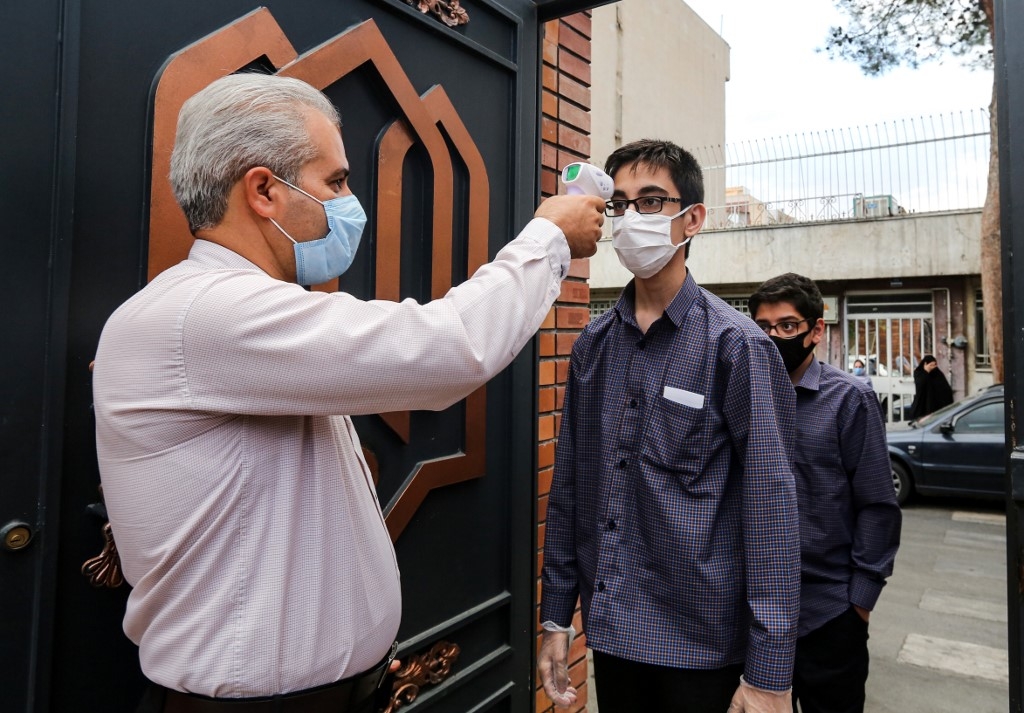Iran facing 'third wave' of coronavirus with resurgence in infections

Iran is dealing with a potential third wave of the novel coronavirus, with the number of new daily infections currently at about 3,000, similar to the numbers back in February.
According to the latest figures announced on Friday by a health ministry spokesman, 141 people died and 3,041 new cases were registered in the previous 24 hours.
The total death toll is 23,952, and 28 of the country’s 31 provinces, including the capital, Tehran, are classified as red or yellow on a scale denoting the severity of outbreaks.
Deputy Health Minister Alireza Reisi has attributed the increase to Iranians not abiding by safety measures implemented by authorities.
"It will infect anyone entering its territory, and this is the only thing that is fixed in the world about this virus," Reisi said in a statement.
"Therefore, whenever the level of observance of health protocols decreases, the onset of the disease begins. We have seen many ups and downs in this disease."
Abbas Ali Dorsti, vice-chancellor for health at Tabriz University of Medical Sciences, warned that despite Iranians observing about 70 percent of health protocols in recent weeks, an increase in travel and non-observance of some protocols may have helped cause infections to resume.
Alireza Zali, the anti-coronavirus coordinator for Tehran, said forecasts showed the country was "moving towards a third wave of the coronavirus, and it seems the wave will take shape in Tehran much earlier than other provinces," the Guardian reported.
The resurgence of the novel virus comes with worries about the arrival of influenza season, which, coupled with the coronavirus, may lead to even more infections.
Covid-19 ravaging Iran
The Islamic Republic has faced the worst outbreak of Covid-19 in the Middle East since the first cases were reported in February.
Infection rates began to decline in May, with the imposition of strict lockdown measures.
Still, with those measures and some other restrictions being lifted, the country is now reporting a resurgence of cases in most provinces, including the capital Tehran.
Schools and universities have reopened to students, but it has been left to parents to decide whether to send their children to class, and many are keeping them at home.
With some Iranians warning of a new health calamity this winter, Iranian President Hassan Rouhani said the health department was trying to assemble an extra 10,000 hospital beds.
The coronavirus has infected a total of more than 416,000 Iranians, although official figures are widely seen as underestimated.
The crisis comes at a time of increased pressure on the cost of living of ordinary people, with crippling sanctions hitting Iran's currency and driving up the price of everyday goods, including food and medicine.
Middle East Eye delivers independent and unrivalled coverage and analysis of the Middle East, North Africa and beyond. To learn more about republishing this content and the associated fees, please fill out this form. More about MEE can be found here.





